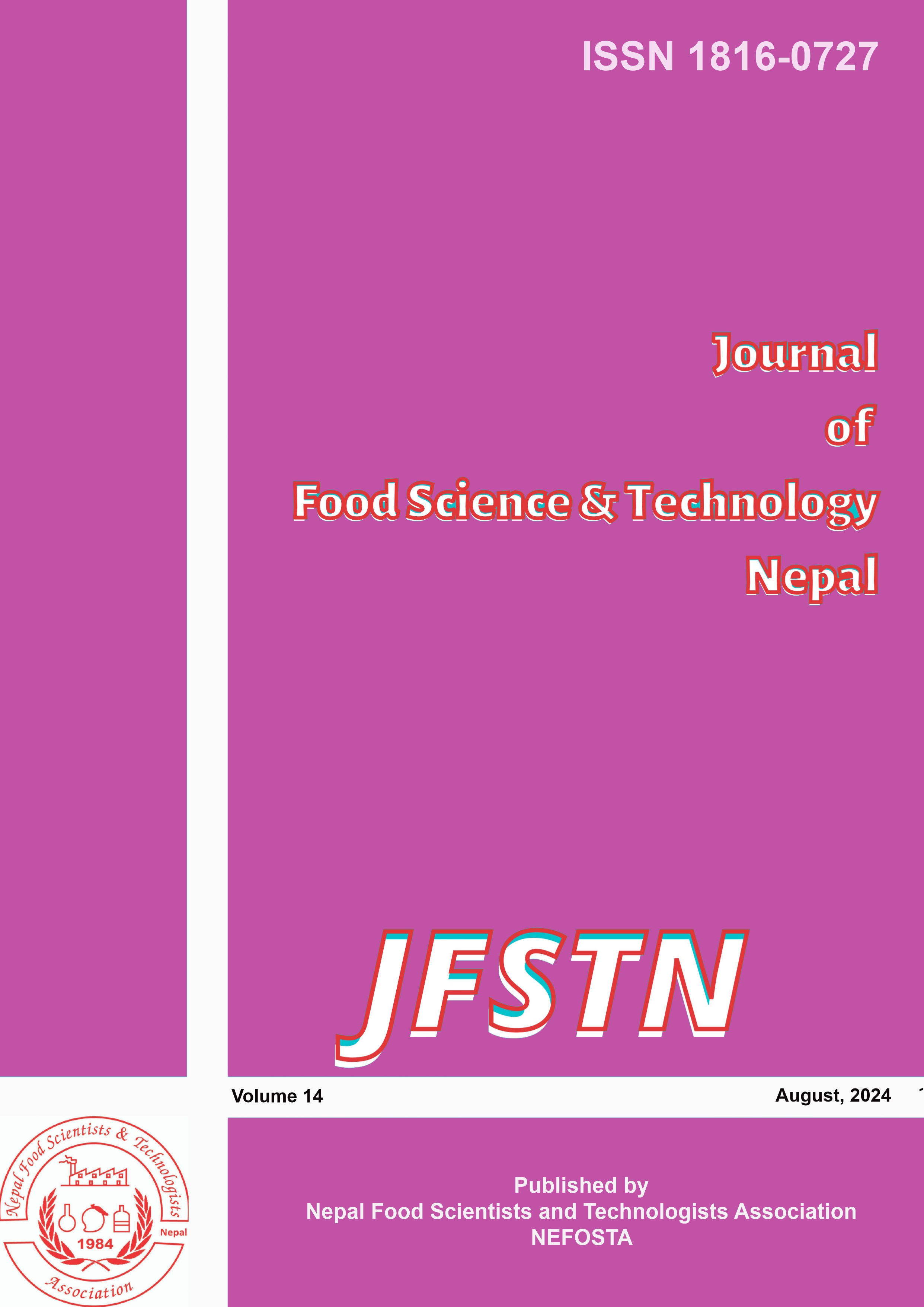Utilization of Psyllium Husk for Development of Synbiotic Soy Yoghurt and Cow Milk Yoghurt
DOI:
https://doi.org/10.3126/jfstn.v14i14.71693Keywords:
Functional Food, Prebiotic, Probiotic, Psyllium Husk, SynbioticAbstract
A study was carried out incorporating fiber-rich psyllium husk into soy yoghurt to enhance its nutritional profile and functionality and compare it with that of cow milk yoghurt. Four different formulations of soy yoghurt and cow milk yoghurt each were made using psyllium husk as a prebiotic and ABT7 (mixed culture: L. bulgaricus, S. thermophillus, B. animalis) as probiotics, with the first batch of each serving as a control. The best formulation was chosen based on sensory attributes and the selected formulations were then physically and chemically analyzed for various parameters such as pH, titratable acidity, water syneresis, total soluble solid (TSS), total reducing sugar, total phenol content, total flavonoid content, total antioxidant activity, and microbial counts for 12 days with three days of time interval. The study found that synbiotic soy yoghurt specifically with 0.5% psyllium husk, had the highest nutritional value, high viability, phenolic, flavonoid, and anti-radical activity, with levels ranging from 8.15-8.32 log CFU/ml, 2.21-2.84%, 5.64- 25.53%, and 62-64% respectively and are significant (p<0.05) at 5% level of significance when stored for 12 days. The study revealed that the prepared synbiotic yoghurts were not suitable for storage beyond 12 days even at refrigeration temperature. However, the study resulted in the production of the fibre riched synbiotic soy yoghurt with best organoleptic and sensory properties within the storage period.
Downloads
Published
How to Cite
Issue
Section
License
The author will be the copyright holder of this open access journal - 'Journal of Food Science and Technology Nepal (JFSTN)'.




